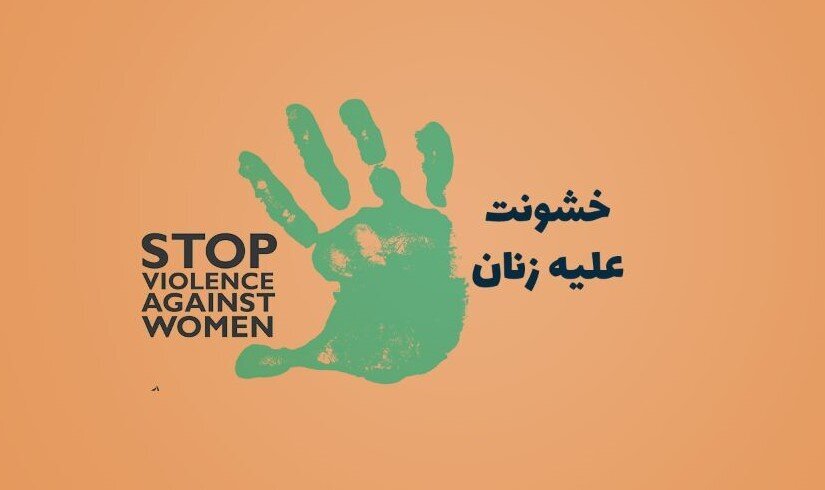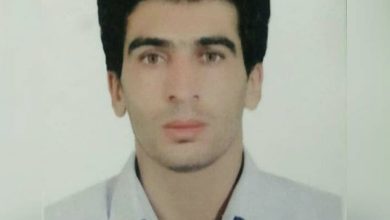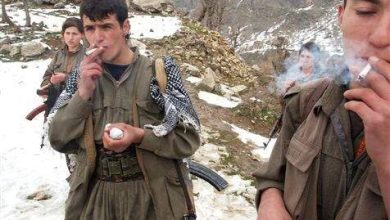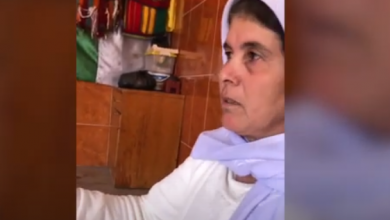Life Story Overview
The life story of Farideh Barzekar, set against the backdrop of social and political changes in Iranian and Iraqi Kurdistan, is a clear symbol of the identity challenges and complexities that generations of Kurds have faced.
Early Life and Family Background
Farideh Barzekar was born on October 7, 1978, in Nowdesheh. At that time, her father, Saeid Barzekar, an old member of the armed group known as the Kurdistan Democrat, was engaged in armed activities. This family background influenced Farideh’s life and shaped the social and cultural conditions of her era. Her father went into exile and officially joined the Democrat group when she was six months old.
Growing up as an orphan in a tense and crisis-ridden environment, Farideh’s life reflects the harsh realities many Kurdish women faced. The absence of her parents affected her personal identity and shaped her social perceptions. This clearly demonstrates the deep social and psychological impacts of war and migration on younger generations.
Challenges of Early Marriage and Domestic Violence
Farideh faced early marriage and domestic violence, highlighting structural challenges in a society where women are often victims of gender and social inequalities. These experiences impacted her personal life and represent the general condition of women in Iranian Kurdistan who struggle with economic, social, and cultural issues.
After enduring significant hardships, Farideh decided to return to Iran. This choice shows her attempt to rebuild her and her children’s identities in a new environment and demonstrates her search for identity and belonging amidst social and political challenges.
Life in Paveh and Family Separation
Farideh, with only a fifth-grade education, now works as a caregiver for an elderly woman in Paveh. Her mother also left for the region to bring her husband back when Farideh was eight but stayed there herself. After that, eight-year-old Farideh and her twelve-year-old sister lived with their maternal grandmother.
First Marriage
At age 13, under family pressure, Farideh married a man 17 years older than her. They had one daughter. Due to severe problems, disagreements, insults, and beatings, she decided to divorce in 2007. A few months later, with nowhere to live, she moved to the Kurdistan Region, specifically the city of Koye, and lived with her parents.
Second Marriage and Life in the Region
After a few months, Farideh met and married Ali Javanmiri from Nowdesheh. They have two children: a 12-year-old son and a 10-year-old daughter. Farideh claims she had no activities on behalf of the Democrat armed group and only lived as a housewife. She insists that her second husband was violent and suspicious, from whom she divorced a month before returning to Iran. His violence was so severe that the group disarmed and expelled him due to multiple conflicts.
In June 2022, after enduring hardships in the region, Farideh returned to Iran with her daughter and son to start a new life.
Detailed Interview with Iranian Kurdistan Human Rights Watch
Question: Ms. Barzekar, please tell us about your family and your childhood.
Answer: I am Farideh Barzekar, born on October 7, 1978, in Hajij, a district of Nowdesheh. My father, Saeid Barzekar, was an old member of the Kurdistan Democrat Party. When I was born, he was involved in political and armed activities. At six months old, he left Iran and joined the party headquarters in the Kurdistan Region of Iraq. I did see him occasionally through phone calls or brief meetings, but these moments were fleeting. At age eight, my mother went to bring my father back but never returned. My sister and I lived with our maternal grandmother. These years were the hardest. A child without parents feels the world is making decisions for her. I could study only up to fifth grade.
Question: How did you get married at a young age?
Answer: I was 13. My family believed a girl without parents should marry early. I married a man 17 years older. I knew nothing about marriage or love. I was forced to marry so others could be rid of me. From this marriage, I have a daughter who now has her own family. My married life was full of humiliation, violence, and insults. Divorce was seen as unforgivable for a young woman with a child.
Question: After your first divorce, what path did you take?
Answer: In 2007, I divorced. I had no home or support. I moved to the Kurdistan Region to live with my parents. They did not welcome me warmly. Months passed as my father focused on party matters, and my mother remained distant.
Question: What happened in the region that you got married again?
Answer: A few months later, I married Ali Javanmiri. We had two children. He was violent, suspicious, and nervous. The Democrat party disarmed and expelled him due to aggressive behavior. Yet life for me and my children remained full of fear.
Question: Did you ever get involved in party and armed activities during these years?
Answer: No. I stayed away from politics and armed actions. My focus was to provide a peaceful life for my children. But the environment kept women submissive.
Question: What made you decide to return to Iran?
Answer: By 2022, I reached a dead end. After divorcing Ali, I had no future. I returned to Iran to start over. The journey was difficult and frightening. When we arrived in Paveh, I felt as if I woke from a nightmare.
Question: How is life now?
Answer: I live in Paveh, caring for an elderly woman. Life is simple. Seeing my children every morning makes me feel alive. No one humiliates me or raises a hand against me.
Question: What is your message for women who are in similar situations to you?
Answer: Do not let anyone exploit your life in the name of freedom or struggle. Fleeing to armed groups is not the way to salvation—they only change the mask of being a victim. Women must save themselves through awareness and independence. Build a healthy life and stand on your own two feet.






